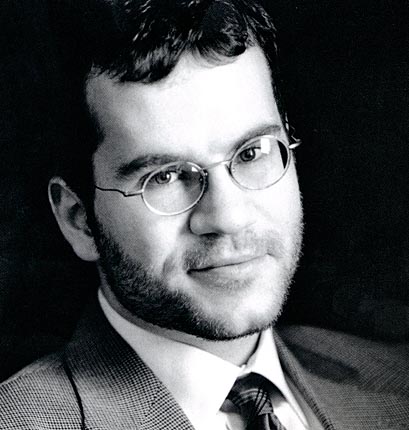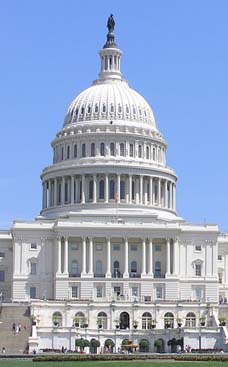
"...Kaplan arrives in Tashkent, Uzbekistan, a city filled with what he calls “the most hideous and alienating example of Soviet design I had seen. It cried out, We crush the weak.” I actually find Tashkent lovely. But, I supposed, there was no accounting for taste. Once ensconced in Tashkent, Kaplan regards a Russian-Uzbek marriage he encounters there as “potentially dangerous.” His visit took place in 1994, only three years after the Soviet collapse. My first visit to Tashkent was in 1996, and Russian-Uzbek intermarriage, at least in Uzbekistan’s cities, was common enough, though perhaps in 1994 these issues were still smoldering. He then moves on to Samarkand, the noblest and most famous city in Central Asia. The bus ride from Tashkent to Samarkand provides some spectacularly rocky and mountainous scenery, but somehow Kaplan notices only “high weeds” and an “achingly flat, monochrome landscape.” Once he reaches Samarkand he remarks on the “battered automobiles, and people in unsightly polyester clothing.” Battered automobiles? Most of Uzbekistan’s people are poor, and this seemed needlessly petty. As for people’s clothing, I have never found Uzbekistan’s city-dwellers to be anything but maniacally fastidious about their appearance. (Shoeshining is practically the Uzbek national pastime.) He gets wrong the 1994 exchange rate of the Uzbek currency by a factor of 100. He visits Guri Amir, the tomb of the fourteenth-century despot Tamerlane, which he spells “Gul Emir.” He says the word uzbek means “independent” or “free.” That is wrong." Author Tom Bissell served as a Peace Corps Volunteer in Uzbekistan.
Tom Bissell writes: The Case Against Travel Writer Robert D. Kaplan
Euphorias of Perrier: The Case Against Robert D. Kaplan
Tom Bissell
Throughout his long career Robert D. Kaplan has consistently benefited from the fact that no one has any idea what, exactly, he is. A humble travel writer? A popular historian? A panjandrum analyst of developing-world politics and personalities? The 2001 reissue of Kaplan’s Soldiers of God: With Islamic Warriors in Afghanistan and Pakistan (1990) tried to settle the matter. The back-cover copy refers to Kaplan, pretty much definitively, as a “world affairs expert.” Kaplan’s prolific writing would appear to bear out such stature. The subtitles of his eleven books mention twenty countries or regions. The Mediterranean? Check. Kaplan has even lived there. Central Asia? Too late. Kaplan covered it. Southeast Asia? Nope. Annexed by Kaplan. North Africa? Kaplan. West Africa? Sorry. South America? What do you think?
[Excerpt]
Kaplan came to my attention while I was researching my first book, an account of my travels in the former Soviet republic of Uzbekistan, in 2001. I believed then and believe now that the travel genre has much to answer for. Travel writers are seldom scholars. They are, by inclination if not definition, transients and dilettantes. All that can save the travel writer and redeem his or her often inexpert perceptions of foreign people and places is curiosity, a willingness to be uncertain, an essential emotional generosity, and an ability to write. Even travel writers well equipped in all of the above are inevitably attacked for missing the point, getting all manner of things wrong, and generally mucking about in questions of history and scholarship to which—when compared to experts—they have only lightly exposed themselves. This does not mean the travel writer is incapable of insight, to say nothing of entertainment, and in some cases the travel writer’s fresh-eyed unfamiliarity with a place can be made a virtue. As Lord Palmerston once said, “When I wish to be misinformed about a country, I ask the man who has lived there thirty years.”
While reading up on the available English-language literature concerning Central Asia, I came across Kaplan’s The Ends of the Earth: A Journey to the Frontiers of Anarchy (1996), which features a long section on Uzbekistan. Until Kaplan reaches the Uzbek capital, I read The Ends of the Earth more or less attentively. While Kaplan’s prose was usually peahen drab and his use of illustrative detail unimaginative, the man was certainly intrepid. He wanders from Sierra Leone to Iran to Cambodia, all the while splattering the reader with regurgitations of various scholarly research: where the word Turk comes from, a pocket history of the Iranian city of Qom, the “deceptive” nature of the term Indochina. I did not mind Kaplan’s cribs; I have done the same, as has every travel writer. Kaplan’s tone, however, often troubled me. The disintegrating, anarchic world he conjures in The Ends of the Earth is irradiated with tribalism, fanaticism, and stupidity. Since I had no firsthand experience with the places Kaplan was writing about, I swallowed his essential points even as I grimaced at the castor-oil hectoring that accompanied them.
Then Kaplan arrives in Tashkent, Uzbekistan, a city filled with what he calls “the most hideous and alienating example of Soviet design I had seen. It cried out, We crush the weak.” I actually find Tashkent lovely. But, I supposed, there was no accounting for taste. Once ensconced in Tashkent, Kaplan regards a Russian-Uzbek marriage he encounters there as “potentially dangerous.” His visit took place in 1994, only three years after the Soviet collapse. My first visit to Tashkent was in 1996, and Russian-Uzbek intermarriage, at least in Uzbekistan’s cities, was common enough, though perhaps in 1994 these issues were still smoldering. He then moves on to Samarkand, the noblest and most famous city in Central Asia. The bus ride from Tashkent to Samarkand provides some spectacularly rocky and mountainous scenery, but somehow Kaplan notices only “high weeds” and an “achingly flat, monochrome landscape.” Once he reaches Samarkand he remarks on the “battered automobiles, and people in unsightly polyester clothing.” Battered automobiles? Most of Uzbekistan’s people are poor, and this seemed needlessly petty. As for people’s clothing, I have never found Uzbekistan’s city-dwellers to be anything but maniacally fastidious about their appearance. (Shoeshining is practically the Uzbek national pastime.) He gets wrong the 1994 exchange rate of the Uzbek currency by a factor of 100. He visits Guri Amir, the tomb of the fourteenth-century despot Tamerlane, which he spells “Gul Emir.” He says the word uzbek means “independent” or “free.” That is wrong. His translator, Ulug Beg, a young Uzbek, claims to be “ashamed” in Samarkand because it has so many Tajiks. “How can I like them?” Ulug Beg asks Kaplan of the Tajiks. “We must settle Uzbeks here. We must settle many, many Uzbeks in Samarkand.” Problem: Samarkand, though a Tajik-majority city, has many, many Uzbeks. He writes that Samarkand is a “would-be Bangkok,” with its “army of whores.” I asked a friend who lived in Samarkand for years if that description at all rang true to him. My friend was still laughing when I hung up the phone. When Ulug Beg slurps as he eats Kaplan calls him “crude” and wonders if Ulug Beg’s manners might be explained this way: “Could these be pre-Byzantine Turks? Could this be what Turks might have been somewhat like before the great Seljuk and Osmanli migrations to Anatolia”? The Seljuks migrated to Anatolia around 900 years ago. That Kaplan does not understand how offensive such eugenic explanations are for one young man’s eating habits is appalling. That he does not recognize the basic implausibility of such an explanation is beyond reason.


















